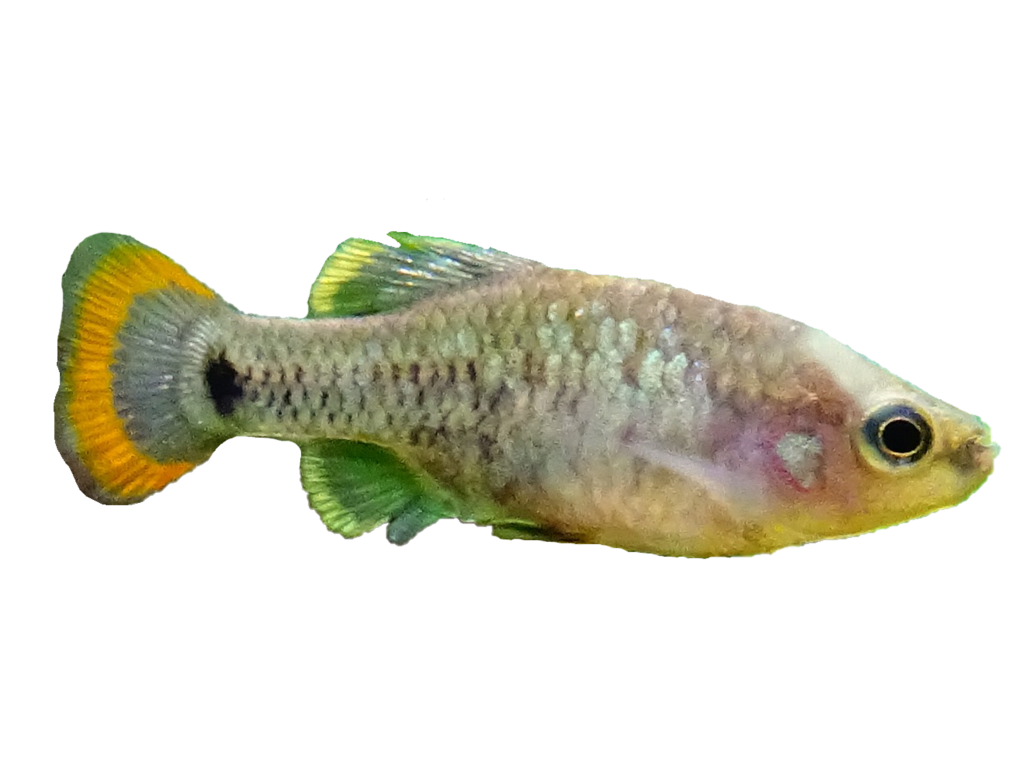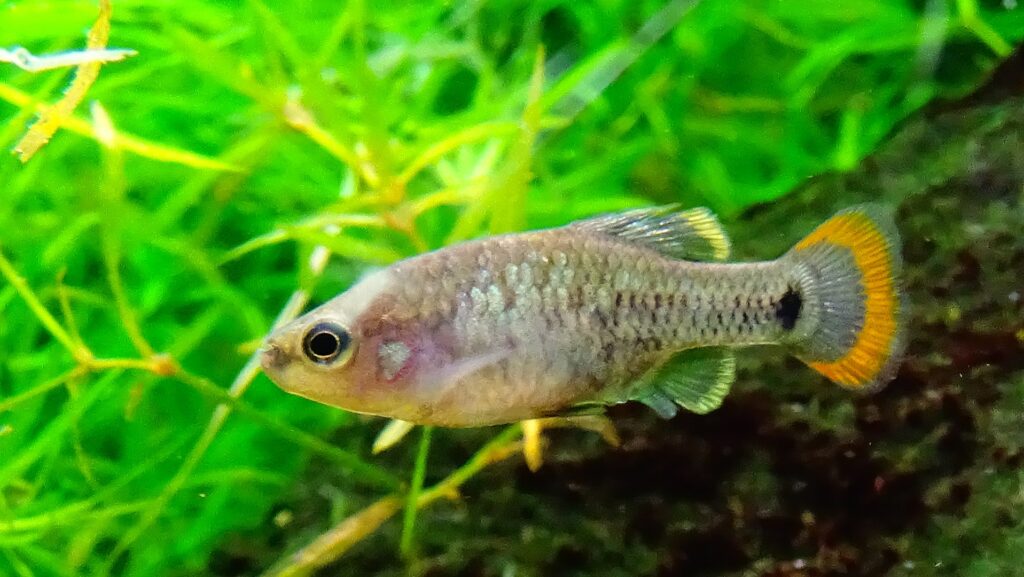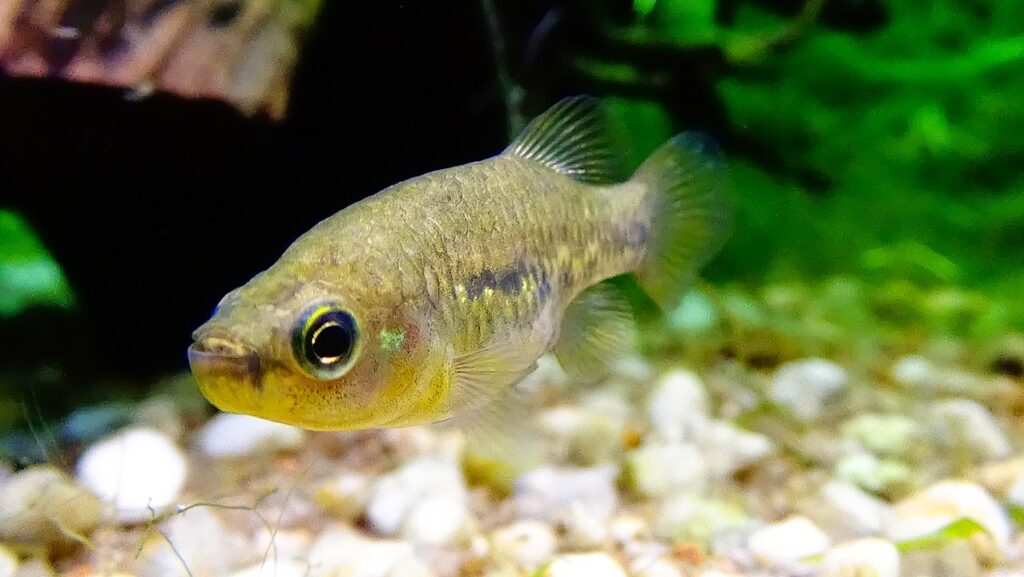Tequila splitfin
Zoogoneticus tequila

The little fish that went extinct in the wild
At the end of the 1990s, the tequila splitfin was thought to be completely extinct in the wild. A few years later, in 2001, a small group of tequila splitfins were found in a small puddle near the river where they were once abundant. Two years later, the puddle, and therefore the entire species, had disappeared from the wild! Its extinction was due to pollution in the area, but also due to invasive fish species that had outcompeted the tequila splitfin.

Photo: Cedricguppy-Loury-Cedric-CC-BY-SA
Successful return
But the little fish wasn’t gone forever. In aquariums around the world, tequila splitfins had been living and breeding since the 1950s when they first became a popular aquarium fish. A small group of 10 tequila splitfins were sent from England to a university in Mexico, where it was decided to try to reintroduce the little fish back into the wild.
The project took many years. The fish were carefully studied in order to find out exactly how they lived and what they needed to survive. Eventually, the fish were moved into an old pool, and got to practice living in the wild – with varying water conditions, different food availability and the presence some predatory fish. In 2016, 80 pairs of tequila splitfins were finally released into their original habitat in the Teuchitlán River. Three years later, in 2019, researchers found that the species appears to be thriving, feeding and reproducing well in the wild.

Photo: Cedricguppy-Loury-Cedric-CC-BY-SA
Endemic to Mexico
Most of what we know today about the tequila splitfin is what scientists have learned from breeding the species in captivity. The species is endemic to the Teuchitlán River area near Guadalajara, Mexico, where it lives in flowing water or small puddles of shallow water. It is not yet certain that the species will survive in the long run, and is therefore listed as endangered on the Red List.

Distribution worldwide
The Teuchitlán River in central Mexico.

Threat based on the Red List

Trade regulations
CITES: Not listed.